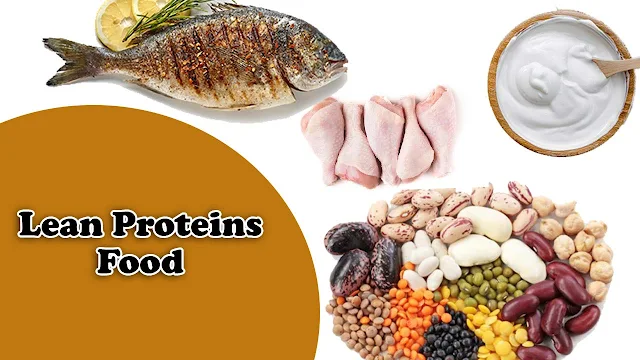Introduction:
In today's health-conscious world, there is a growing emphasis on maintaining a well-balanced diet. One crucial aspect of a healthy diet is the inclusion of lean proteins. But what exactly are lean proteins, and why are they essential for our overall well-being? In this blog post, we will delve into the world of lean proteins, exploring their benefits, sources, and how they contribute to a healthier lifestyle.
What are Lean Proteins?
Lean proteins are a vital component of a balanced diet and are known for their low-fat content. They provide essential amino acids that our bodies need to build and repair tissues, support muscle growth, and maintain overall health. Unlike fatty cuts of meat or processed protein sources, lean proteins offer a wealth of nutritional benefits without the added saturated fats and cholesterol.
Benefits of Lean Proteins:
1. Weight Management:
Including lean proteins in your diet can aid in weight management. Proteins are known to increase feelings of fullness, reducing the urge to overeat or snack on unhealthy foods. This can help control calorie intake and promote weight loss or maintenance.
2. Muscle Development and Recovery:
Lean proteins play a crucial role in muscle development and recovery. They provide the necessary amino acids needed to repair and rebuild muscle tissues after exercise or physical activity. Including lean proteins in your post-workout meals can optimize muscle recovery and enhance performance.
3. Increased Satiety:
Lean proteins take longer to digest compared to carbohydrates, helping you feel fuller for longer periods. This can prevent unnecessary snacking between meals and aid in maintaining stable blood sugar levels throughout the day.
Sources of Lean Proteins:
1. Poultry:
Skinless chicken and turkey breasts are excellent sources of lean proteins. They are low in fat and high in protein, making them a versatile choice for a variety of meals.
2. Fish:
Fish, such as salmon, tuna, and trout, are rich in omega-3 fatty acids and lean proteins. These healthy fats offer numerous cardiovascular benefits while providing a lean protein source.
3. Legumes and Beans:
Vegetarian or vegan? Legumes and beans like lentils, chickpeas, and black beans are excellent sources of lean proteins. They are also high in fiber, making them an ideal choice for those looking to improve digestion and maintain a healthy weight.
4. Greek Yogurt:
Greek yogurt is an excellent source of lean protein, with approximately twice the protein content of regular yogurt. It can be enjoyed as a snack or incorporated into various recipes.
Incorporating Lean Proteins into Your Diet:
Now that you understand the importance of lean proteins, it's time to incorporate them into your diet. Consider the following tips:
1. Include lean proteins in every meal: Aim to have a source of lean protein in each of your meals. This will help you maintain a steady intake throughout the day.
2. Experiment with recipes: Explore various recipes that incorporate lean proteins, such as grilled chicken salads, fish tacos, or vegetarian chili. This will keep your meals exciting and diverse.
3. Plan your meals in advance: Planning your meals in advance can help ensure you have lean protein sources readily available and avoid resorting to less healthy options.
Conclusion:
Lean proteins are an essential part of a healthy diet, offering numerous benefits for weight management, muscle development, and overall well-being. By incorporating lean protein sources like poultry, fish, legumes, and Greek yogurt into your meals, you can optimize your nutrition and enjoy a healthier lifestyle. Remember, a balanced diet is key, so make sure to pair your lean proteins with a variety of fruits, vegetables, whole grains, and healthy fats for a well-rounded approach to nutrition.

